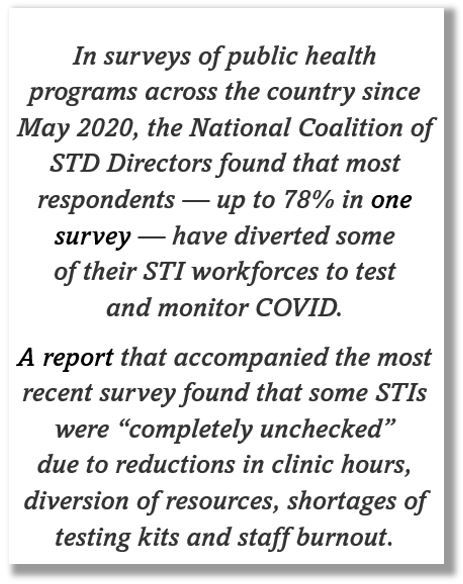- Clinical Technology
- Adult Immunization
- Hepatology
- Pediatric Immunization
- Screening
- Psychiatry
- Allergy
- Women's Health
- Cardiology
- Pediatrics
- Dermatology
- Endocrinology
- Pain Management
- Gastroenterology
- Infectious Disease
- Obesity Medicine
- Rheumatology
- Nephrology
- Neurology
- Pulmonology
At-home STD Tests in California Must be Covered by Insurance, says New Law
California on Jan 1 became the first state to require insurance coverage for at-home testing for sexually transmitted infections; it isn't smooth sailing, yet.
HIV, syphilis, and chlamydia are among STIs that at-home tests can detect. (©Kateryna_Kon/stock.adobe.com)

California on January 1, 2022, became the first state to require health insurance plans to cover at-home tests for sexually transmitted infections (STI) such as HIV, chlamydia, and syphilis — which could help quell the STI epidemic that has raged nearly unchecked as public health departments have focused on COVID-19.
The rule is part of a broader law addressing the STI epidemic and on January 1 took effect for California residents with state-regulated private insurance. Medicaid enrollees will be covered by the legislation later this year.
By making it easier and cheaper for Californians to self-administer tests in the privacy of their homes, the provision could bring better disease monitoring to rural and underserved parts of the state, reduce the stigma patients experience when seeking care, and give them more control over their health, say experts on infectious diseases.
“This is the first law of its kind, and I’d say it’s kind of cutting-edge,” said Stephanie Arnold Pang, senior director of policy and government relations for the National Coalition of STD Directors. “We want to bring down every single barrier for someone to get STI testing, and out-of-pocket cost is a huge factor.”
The novelty of the concept of insurance coverage for home STI tests is causing delays, however, including the inability of Medi-Cal, California’s state Medicaid program, to establish by Jan 1 the billing codes it needs to start paying for tests. Nor have the tests been approved for home use yet by Federal regulators which could make labs hesitant to process them. In fact, a state analysis predicts most in-network health care providers won’t start prescribing home tests for at least a year until they adjust their billing and other practices.

STIs skyrocket, COVID diverts resources
According to 2019 data from the Centers for Disease Control and Prevention (CDC) STI infections reached all-time highs in California and across the US for 6 consecutive years. Rates of congenital syphilis paint a lurid picture of the STI epidemic: Cases were up 279% from 2015 to 2019 nationally and 232% in California.
The COVID-19 pandemic has made the problem even worse as health departments across the country have been overwhelmed responding to the national health emergency and stay-at-home orders have restricted clinic attendance.
In surveys of public health programs across the country since May 2020, the National Coalition of STD Directors found that most respondents — up to 78% in one survey — have diverted some of their STI workforces to test and monitor COVID. A report that accompanied the most recent survey found that some STIs were “completely unchecked” due to reductions in clinic hours, diversion of resources, shortages of testing kits and staff burnout.
Some at-home STI tests screen for a single disease but other kits can collect and send samples to check for a variety of infections. Depending on the test, patients collect a drop of blood with a lancet, or swab their mouth, vagina, anus, or penis. Some tests require patients to send samples to a lab for analysis, while some oral HIV tests give results at home in a few minutes.
Under California’s new law, insurance plans regulated by the state must cover home STI tests when ordered by a health care provider.
Other state experiments
Other states and organizations have experimented with at-home STI tests. The public health departments in Alabama and the District of Columbia send free kits to residents who request them, but neither jurisdiction requires insurance coverage for them. The National Coalition of STD Directors is sending free kits to people through health departments in Philadelphia; Iowa; Virginia; Indiana; Puerto Rico; and Navajo County, Arizona. The list of recipients is expected to grow this month.
Iwantthekit.org, a project of Johns Hopkins University, has been sending free kits to Maryland residents since 2004, and to Alaskans since 2011. The program is funded by grants and works with local health departments.
Charlotte Gaydos, co-founder of the Hopkins project, said that requests for test kits during the pandemic nearly tripled — and that she would expand to every state if she could bill insurance the way the California law mandates.
The tests fall into a murky regulatory area. While they have been approved by the Food and Drug Administration, none have been cleared for use at home. Patients are supposed to collect their own samples within the walls of a health facility, and some labs may not analyze samples collected at home.
Public health officials cited other potential challenges: Patients may not have the same access to counseling, treatment, or referrals to other services such as food banks that they would receive at clinics. And although patients are supposed to self-report the results of their tests to public health authorities, some people won’t follow through.
This story was produced originally produced by Kaiser Health News, one of the 3 major operating programs at Kaiser Family Foundation.
